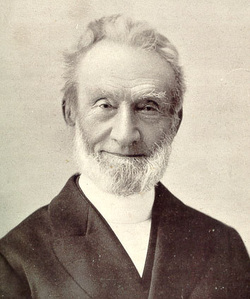
I read recently that a perfect tweet needs to do three things: get the reader’s attention, make a complete statement - preferably without abbreviations, and leave the reader with a memorable point. Each aspect is simple enough, but it’s the ability to get them all together in such a short form that makes a tweet truly excellent.
In the book How God became Jesus, Michael Bird (forgive what might seem like a pun) makes the point, in passing, that the Gospel of John “tweets” the incarnation. This is what he says: “John 1:14 in Greek is exactly 140 characters: 'The Word became flesh and made his dwelling among us. We have seen his glory, full of grace and truth’” (p. 68). This set me thinking in terms of the perfect tweet. How does John’s statement fit the rules?
Hopefully noticing who ultimately sent the message in John 1:14 gets our attention, so that aspect should be taken care of, and John’s words certainly make a complete statement without abbreviation. So how about leaving the reader with a memorable point? That’s where John really excels! In the space of those 140 characters John delivers the incredible news that God became man, and that the One who is described as “the Word,” or the Son of God, actually dwelt among us. This is a massive concept in itself, but John continues with two other amazing truths – that this is not just a story, it is something that was witnessed by numerous individuals – and not just glimpsed, but actively seen to the degree that the witnesses could see God’s nature, as being “full of grace and truth.” That’s really three hugely important statements about the Christian faith all in the same “tweet” space.
The one thing this “tweet” doesn’t tell us is why these three connected and vital things occurred, and for that we have to turn, of course, to another of John’s tweet-size statements – that “God so loved the world that he gave his only Son, that whoever believes in him shall not perish but have eternal life” (John 3:16). This statement tells us three things, also. It describes God’s love, shows us the need for faith, and tells us the outcome we get when the two things are put together.
Looked at that way, if we focus closely on his words and think about them, John was able to preach a very large part of the gospel in two amazingly small, tweet-sized statements. How does that apply to us? It should remind us what incredible depth there often is in just a few words in the Gospel of John and, of course, in many other parts of the Bible. It reminds us why we hear so often that we shouldn’t just read the Bible, but that we should truly focus on all that is in even the smallest statement that tells us something about God. We don’t need to focus that intently on the average tweet to grasp all its meaning, but when it is God who is sending the message, there is often a great deal in the space of only a few written characters.









 RSS Feed
RSS Feed
